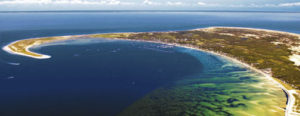
Feeling both envy and admiration, I picked up the novel, The Maytrees, by Annie Dillard.
Annie Dillard and I have some things in common. Both she and I grew up in Pittsburgh on the East Side. As a teenager, I tutored a 7th grader in the exclusive girls’ school she attended several blocks away from mine. I probably passed her in the halls on my way to the library. I never knew about her until I read her memoir, American Childhood, A Writing Life, twenty years later. Needless to say I was subsumed with envy at her publishing success. I also admired her insights about being a writer-girl in Pittsburgh during the ’50s. There’s at least one more connection we have. The main character in my second novel, Dreamers, A Love Story of the ’60s, is called Annie too.
A story of marriage on Cape Cod after WWII, The Maytrees is also a diorama of Provincetown, Massachusetts, the iconic artist’s colony where Lou and Toby Maytree’s marriage takes place and where the land itself splashes over the pages like surf crashing on the shores of Race Point.
Marriage is not exactly in one’s mind when thinking of Provincetown, the ultimate Rave party of artist colonies by the sea. I came to P-town on the Greyhound Bus at nineteen, my first summer away from Pittsburgh, and got a job as a waitress at Howard Johnson’s. The second time I came was five years later when I became a writing fellow in the acclaimed Fine Arts Work Center. There were seven of us in 1969, two women and five men, the most famous of who won a Pulitzer Prize and became US Poet Laureate. It was in P-town that I began writing the novel that turn out to be Dreamers.

Sunrise over the ice blue ocean, snow covering the dunes, the curled hooked spit of Cape Cod; it’s all there in The Maytrees. The writing itself is luminous. Dillard’s style simple, yet exotic, as befits a naturalist. Each sentence seems unique and cultured, pristine and studied. The lack of quotation marks, just dashes instead, a convention popular abroad, adds to the foreign flavor.
That winter I spent in P-town I might have met Dillard’s characters, the reclusive sometime artist, Lou, and Toby Maytree, poet and house mover. Many couples befriended me and the other young artists. Eccentric, alluring, stylish, cultured writers and painters with their boyfriends, girlfriends, wives and husbands greeted me at those parties they held, full of drugs and alcohol, patched with celebrities. I attended many on those sea-blown nights. How I envied those couples arm in arm and yearned to get close to them. I envied the literary celebrities too. If Annie Dillard had been there, she and I could have been friends.
For sure I met Deary, Lou’s best friend in The Maytrees, who slept among the beach peas and had a degree from MIT. Deary who makes random pronouncements like, “Every place you injure on your body grows more alive,” which Lou takes seriously.
Then there’s the marriage itself, pure and simple like the acclaimed white dunes around P-town, like those welcoming couples inviting me into their well-lit, warm, houses so close to the beach.
What Toby loves most about Lou is her laugh (as she rarely talked or shared her thoughts). What Lou loved were Toby’s hands, his simple directness and their sex together–Lou describes herself as “shipwrecked on the sheets”. Much to envy and admire in that!
But then, seemingly out of nowhere, catastrophe happens–the usual adultery, abandonment, and betrayal, with no going back. The wild, blue blood, gregarious Deary goes off with Toby, breaking up the marriage. But there’s no fighting or discussion, no tears or rancor. Just plain old numbing pain for Lou and benign dismay for Toby.
Avoiding the comfortable, the Wi-Fi tech-driven twenty-first century life, the fabled bars of Provincetown and old friends is what Lou aspires to after the marriage dissolves. As for Toby and Deary, they’re driven to build a successful home contracting business in Maine. But it’s not over, not yet.

If marriage is the message for the couple, it’s rolled up in a bottle you have to search for.
All in all Annie Dillard, a naturalist as well as writer, has spawned a rare, gentle deviant to the marriage of two minds, embracing an often hidden truth that any good marriage ends in old age and death. I admire her for that and for telling the story in such a rare way.
I left Provincetown the end of that winter back in 1970, though I was invited to return to the Fine Arts Work Center for a second year. Now I can see how good that might have been for me and my writing life. But then I was running too fast, frightened of being exposed as unfit to be a writer, and trembling for success in spite of it. In Annie Dillard’s The Maytrees, I get to go back again and enjoy it all.
